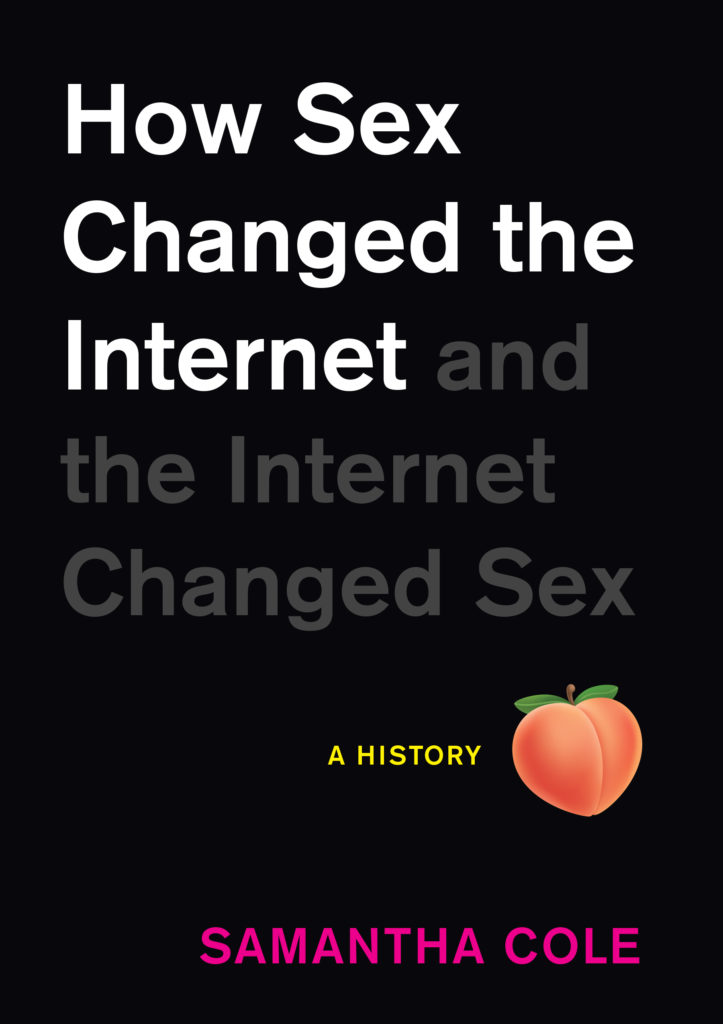
How Sex Changed the Internet and the Internet Changed Sex: An Unexpected History
Samantha Cole, 288 pgs, Workman Publishing, workman.com, $30
As a general rule, whenever you invent something, within a few hours some-one will be using it to get off. How Sex Changed the Internet makes a compelling argument for sexuality’s centrality to the story of the web, even as it shows how this history’s primary sources have been consistently suppressed and neglected. Written by Motherboard senior editor Samantha Cole, it’s a breezy, informative read in the style of a good Vice or Jezebel feature.
Books about the internet tend to age like fine milk. Months or years pass between when the author turns in their manuscript and the finished product hits shelves — plenty of time for the technology, discourse, and slang under consideration to have moved on. But there’s also some utility in the simple fact that a book about the internet exists outside of the internet. As Cole, a thirtysomething, notes in her introduction, the web forums and GeoCities sites where she found community in her youth were effectively “razed” by the advent of the social media giants. The preceding generations of ‘80s and ‘90s proto-internet communities are even more inconsistently archived, while the difficulty of indexing something like Twitter throws into question how much cultural history is lost by the second — a glaring concern when it comes to documenting the “disposable” ephemera of sex work and pornography. If the book’s references to recent events already feel dated, at least the text will still be accessible in ten years’ time.
Being of a similar age to the author, I was most taken by her accounts of the DIY days of online sex. The stories of these amateurs, enthusiasts, and grifters are touchingly naïve, often even brave. In tracing how homebrewed filth developed into the corporatized sex trade of recent years, Cole does a valuable service. Despite its focus on the past three decades, the book feels almost as much a work of archaeology as pop history.
